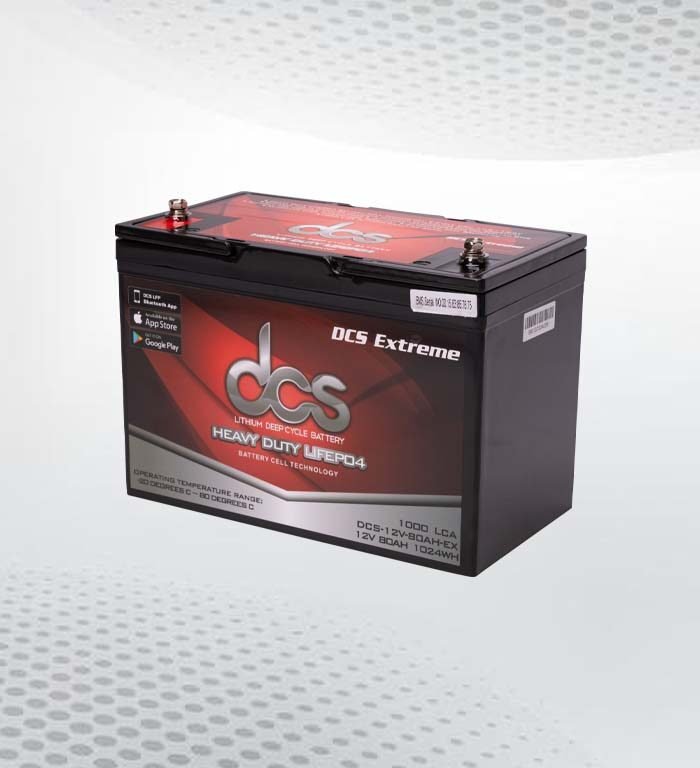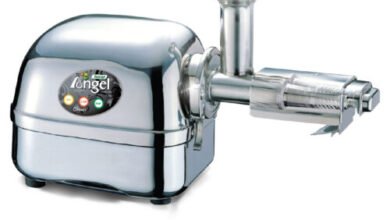Exploring the Efficacy of a Lithium 12v Marine Battery

When powering a boat, having a reliable and efficient battery is crucial. This is where the 12v Marine Battery comes into play. While traditional deep-cycle marine batteries have been the go-to option for powering boats, technological advancements have introduced 12-volt lithium marine batteries. These batteries offer numerous benefits, including longer lifespan, faster charging times, and higher energy density than traditional batteries. This blog post will delve deeper into the efficiency of a 12-volt lithium marine battery and explore why it has become a popular choice among boat owners.
Understanding Marine Batteries
Marine batteries serve as the lifeblood for electrical systems aboard various types of watercraft, from small fishing boats to larger leisure yachts. They are engineered to endure the unique challenges of the marine environment, including moisture, temperature fluctuations, and constant movement.
Unlike car batteries, marine batteries are categorised based on their intended application, encompassing starting, dual-purpose, and deep-cycle batteries. Starting batteries are designed to deliver a high burst of power to crank the engine. In contrast, dual-purpose models compromise starting power and energy storage for running onboard accessories.
However, deep-cycle batteries are particularly esteemed in the maritime community for their ability to discharge a consistent level of power over a prolonged period. This capability makes them indispensable for powering a boat’s myriad of electrical needs, from navigation systems to recreational appliances, without the engine running.
As technology has advanced, so too has the construction and efficiency of marine batteries, with lithium-ion variants coming to the fore for their superior energy density and resilience to frequent charging cycles. Understanding the distinctions between these battery types and their specific uses aboard a vessel is crucial for any boat owner.
By selecting the appropriate battery, one ensures the functionality of their craft’s electrical systems and the safety and enjoyment of their time on the water.
The Rise of the 12V Deep Cycle Marine Battery
The rise of the 12V deep cycle marine battery within the nautical community marks a significant evolution in marine power solutions. These batteries are specifically designed to meet the rigorous demands of the marine environment, ensuring that boaters can rely on their electrical systems in various conditions.
The core appeal of deep-cycle marine batteries lies in their remarkable ability to provide a stable and enduring power supply, making them ideally suited for the extensive array of electrical needs on modern boats.
Unlike their starting or dual-purpose counterparts, deep-cycle batteries are tailored to discharge and recharge repeatedly without compromising capacity or Performance. This cycling capability is crucial for applications that demand a consistent power output over extended periods, such as running navigational systems, lighting, and entertainment systems on board, particularly when the main engine is not in operation.
The transition towards lithium technology in the 12V deep cycle category has further enhanced these batteries’ appeal. The integration of lithium-ion cells has resulted in more efficient energy output batteries and significantly lighter and more compact. This weight reduction is a considerable advantage in marine settings, where every kilogram saved can contribute to improved fuel efficiency and vessel performance.
Moreover, the resilience of lithium batteries to environmental stressors, coupled with their reduced maintenance needs, aligns well with the maritime ethos of reliability and self-sufficiency. Their ability to withstand numerous charge-discharge cycles without significant degradation makes them a sound investment for boaters seeking dependable power solutions.
As such, the rise of the 12V deep cycle marine battery reflects a broader shift towards more sustainable and high-performing energy storage options in the marine industry, underscoring a commitment to innovation and efficiency in marine power management.
Advantages of a 12 Volt Deep Cycle Marine Battery
A 12 Volt Deep Cycle Marine Battery stands out primarily for its exceptional energy density, which permits it to store considerable power in a compact and lightweight design. This feature is particularly advantageous in marine applications where space and weight are critical factors. The reduced weight contributes significantly to enhanced fuel efficiency and better vessel handling, offering a marked improvement over traditional lead-acid counterparts.
These batteries also boast a markedly superior lifespan, enduring more charge-discharge cycles without significant capacity loss. This resilience to frequent cycling makes them an ideal choice for marine settings, where batteries are regularly depleted and recharged. Lithium marine batteries benefit from a remarkably fast recharge rate, enabling them to return to full capacity much quicker than other types, thus ensuring that boats can be ready to set sail without lengthy delays.
Another notable advantage is their low maintenance requirement. Unlike lead-acid batteries, which necessitate regular checks and maintenance, lithium variants are virtually maintenance-free, saving boat owners time and effort. They are also environmentally friendlier, with a construction that omits hazardous materials and a longer lifespan that reduces waste.
Furthermore, lithium marine batteries operate more efficiently, providing consistent power output even under lower charge levels. This efficient power usage ensures that electrical systems on the boat perform optimally, enhancing the boating experience. Their robust design makes them more resistant to the harsh marine environment, including temperature fluctuations and vibrations, offering reliability that boat owners can trust.
The transition to a 12-volt lithium marine battery encapsulates a commitment to efficiency, Performance, and environmental responsibility, underscoring its growing popularity among modern boaters seeking the best in marine power solutions.
Improving Performance with a 12V Battery Monitor
Consistent voltage level monitoring is imperative to optimise the operation and extend the service life of your 12-volt lithium marine battery. A high-quality 12V battery monitor becomes invaluable in this endeavour, providing real-time insights into the battery’s charge state. This proactive approach allows for the early detection of potential issues that could impair Performance or lead to premature battery failure.
Equipping your vessel with a 12V battery monitor does more than just safeguard against overcharging or deep discharge; it enables more efficient management of energy resources. By understanding the exact charge status, boat owners can make informed decisions about power usage, ensuring critical systems remain operational during their time on the water.
This is particularly crucial during extended voyages or when docking options are limited, where optimising battery life becomes essential to maintaining access to navigational aids, safety lights, and communication devices.
Moreover, integrating a battery monitor facilitates a deeper comprehension of the battery’s charging patterns and efficiency over time. Such data not only assists in tailoring charging schedules to maximise battery longevity but also aids in identifying when a battery may be nearing the end of its useful life – thus preventing unexpected failures that could compromise safety or enjoyment on the water.
In essence, adding a 12V battery monitor to your marine battery setup represents a strategic investment in the Performance and reliability of your electrical systems. It empowers boat owners with the knowledge needed to use their 12 V lithium marine battery to its fullest potential, ensuring a seamless and enjoyable boating experience.
Maintenance Tips for Your 12v Battery Deep Cycle Marine
Ensuring the longevity and optimal Performance of your 12v Battery Deep Cycle Marine requires a commitment to routine maintenance. Although lithium marine batteries are celebrated for their low upkeep, they still benefit from regular checks to sustain peak efficiency.
- Firstly, it’s vital to keep the battery and its terminals clean. Saltwater and dirt can lead to corrosion, which impedes the battery’s functionality. Use a mixture of bicarbonate of soda and water to clean any corrosion from the terminals, and rinse with fresh water, ensuring the terminals are dry before reconnecting.
- Monitoring the charge level is another crucial aspect of maintenance. While lithium batteries handle deep discharges better than their lead-acid counterparts, keeping them adequately charged extends their lifespan. Avoid letting your battery deplete entirely; recharge it before it falls below 20% capacity. This practice avoids undue strain and maintains battery health.
- Temperature can also influence a battery’s health and Performance. Store your battery in a location that avoids extreme temperatures. Excessive heat can lead to battery degradation, while cold conditions can reduce capacity. If your boat is unused for an extended period, removing and storing the battery in a cool, dry, and temperature-controlled environment can help preserve its charge and health.
Lastly, inspect the battery for any signs of damage, such as cracks or bulges, which could indicate internal issues. If you spot any damage, consult the manufacturer or a professional. By adhering to these maintenance tips, you can help ensure your 12 V deep cycle marine battery continues to provide reliable power for your boating adventures.
Choosing the Right 12V Lithium Marine Battery for Your Boat
Selecting the appropriate 12V lithium marine battery for your vessel requires careful consideration of several key factors beyond mere brand reputation. It’s imperative to evaluate your boat’s electrical demands to ensure the battery capacity aligns with the needs of your onboard systems.
For instance, the energy requirements for a yacht featuring extensive navigational and entertainment systems vastly differ from those of a smaller fishing boat equipped with basic electronic aids.
The physical dimensions and weight of the battery also play a crucial role, particularly in scenarios where space is at a premium or weight distribution impacts the Performance and stability of the vessel. Lithium batteries, known for their compact and lightweight nature, offer flexibility in installation locations, but ensuring the chosen battery fits within the designated space is essential.
Moreover, it’s beneficial to understand the type of marine activities you engage in. For those who frequently embark on long voyages, a battery with a high energy density and rapid recharge capability ensures sustained power supply and minimal downtime. Conversely, a smaller capacity battery may suffice for casual boaters who take shorter trips, provided it meets the essential power requirements.
Engaging with a manufacturer that offers robust customer support and warranty is also crucial. This facilitates peace of mind and assures assistance in the event of technical difficulties or failures.
In essence, the decision process involves:
- A balanced consideration of your boat’s specific power needs.
- The physical constraints of the battery installation area.
- The nature of your boating activities.
This thoughtful approach ensures the selected 12V lithium marine battery enhances your boating experience and complements the operational efficiency and safety of your maritime adventures.
The Cost of Upgrading to a 12 Volt Lithium Marine Battery
Upfront, the 12 Volt Lithium Marine Battery investments might appear steep when contrasted with traditional lead-acid options. However, it’s paramount to consider the broader financial perspective that encompasses operational savings over time.
Lithium batteries exhibit a remarkably extended service life, often outlasting lead-acid batteries by several years. This longevity translates into fewer replacements and, consequently, reduced expenditure in the long term.
Moreover, the efficiency advantages of lithium batteries contribute to operational cost savings. Their higher energy density means they can store more power in a smaller, lighter package, improving fuel efficiency by reducing the overall weight of the vessel. The rapid charging capability also minimises downtime, allowing more time spent on the water and less time and energy expended on maintenance and charging.
Another economic consideration is the reduced maintenance requirements of lithium batteries. As is necessary for lead-acid batteries, the absence of regular water top-ups and the robustness against deep discharge cycles mean maintenance costs and effort savings.
Whilst the initial purchase price is higher, these factors present a compelling case for the cost-effectiveness of upgrading to a 12V lithium marine battery. It’s an investment that enhances the boating experience through improved performance and reliability, and it aligns with a cost-efficient approach to marine power management over the battery’s lifespan.
Conclusion
Introducing the 12v Marine Battery into the boating industry represents a significant step forward in marine power technology. The advantages these batteries offer, from their compact and lightweight design to their unparalleled efficiency and longevity, make them an outstanding choice for modern boaters. Their ability to deliver consistent, reliable power under various conditions and significantly reduced environmental impact marks a shift towards more sustainable and high-performing energy solutions in the marine sector.
FAQs
How safe are 12v Marine Battery on watercraft?
12v Marine Battery packs are engineered with robust safety mechanisms to mitigate risks such as overcharging and overheating, making them highly suitable for marine applications. Their construction is tailored to endure the marine setting, ensuring a reliable power source for boaters.
What is the expected lifespan of a 12-volt lithium marine battery, and how does it compare with traditional options?
These batteries often surpass traditional lead-acid batteries in longevity, with many models capable of serving for a decade or more, subject to appropriate use and maintenance. This extended lifespan results from their superior design, allowing numerous charging cycles with minimal degradation.
Can a single 12-volt lithium marine battery suffice for all my vessel’s power needs?
A 12-volt lithium marine battery is versatile enough to supply power to an extensive range of onboard systems, including navigation aids, communication devices, and leisure appliances. It is crucial, however, to match the battery’s capacity with your vessel’s power demands to ensure optimal Performance across all systems.



